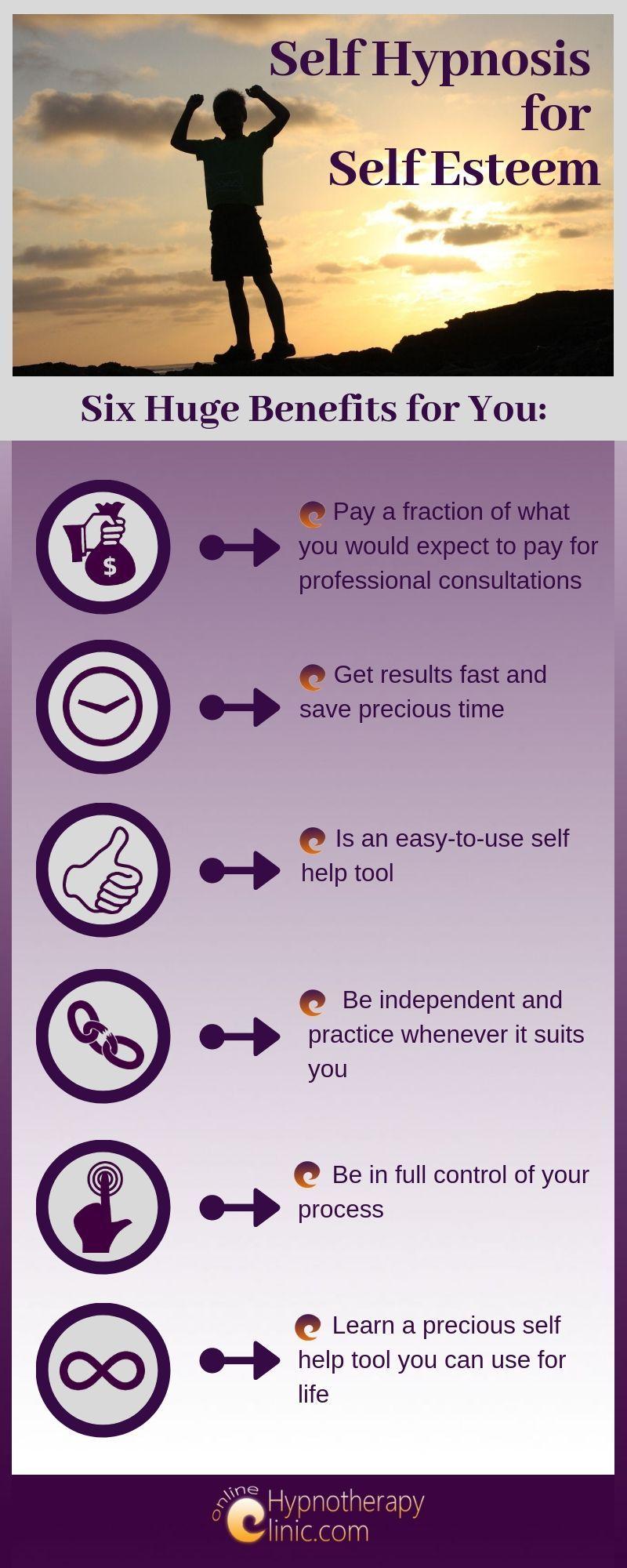Title: The Self-Hypnosis Journey: Can You Become Your Own Hypnotherapist? In a world where the power of the mind is continually being explored, the ancient practice of hypnotherapy has resurfaced as a beacon of hope for those seeking clarity, healing, and self-improvement. Traditionally associated with skilled practitioners guiding their clients through the intricacies of the subconscious, the question arises: can you step into that role and become your own hypnotherapist? This intriguing inquiry invites us to venture into the realm of self-hypnosis—a practice that, when approached with curiosity and intention, can unlock the mind’s potential to effect meaningful change. In this article, we’ll delve into the principles of self-hypnosis, the techniques and hypnotic tools involved, and the considerations to bear in mind as you embark on this transformative journey of understanding and self-discovery. Whether you seek to relieve stress, cultivate focus, or confront limiting beliefs, the possibility of self-hypnosis may just hold the key to unleashing a more empowered version of yourself.

Understanding Self-Hypnosis: Fundamentals and Techniques
Many people ponder the question of whether they can effectively practice hypnotherapy on themselves, and the answer is an enthusiastic yes! Self-hypnosis is a powerful tool that leverages the mind’s capacity to enter a relaxed state where positive suggestions can lead to transformative changes. By focusing on reduction of stress, improved focus, or changing habits, individuals can harness their subconscious to enhance their well-being. The process often involves several key steps, including establishing a comfortable environment, setting clear intentions, and utilizing techniques like guided imagery or affirmations.
To get started with self-hypnosis, consider these fundamental techniques:
- Breathing Exercises: Deep, slow breaths help calm the mind and prepare for deeper relaxation.
- Guided Visualization: Envision a peaceful scene to engage the imagination and promote tranquility.
- Positive Affirmations: Craft statements that resonate with your goals; repeat these with conviction throughout your session.
Below is a simple comparison to help you understand the challenges and benefits of self-hypnosis:
| Challenges | Benefits |
|---|---|
| Difficulty concentrating | Enhanced relaxation skills |
| Inconsistent results | Increased self-awareness |
| Lack of guidance | Empowerment through self-help |

Exploring the Benefits of Self-Hypnotherapy for Personal Growth
Self-hypnotherapy can serve as a powerful tool for personal transformation, enabling individuals to tap into the depths of their subconscious mind. By guiding oneself into a state of focused relaxation, one can access deeper layers of consciousness. This unique state allows for enhanced suggestibility and can facilitate profound changes in behavior, habits, and emotional responses. Some of the remarkable benefits include:
- Increased self-awareness: Engaging in self-hypnotherapy encourages reflection and can help identify limiting beliefs.
- Stress reduction: The relaxation techniques involved often lead to lower anxiety levels and improved stress management.
- Behavior modification: Individuals can work on overcoming fears, quitting bad habits, or fostering positive attitudes.
- Improved concentration: Practicing self-hypnosis can enhance focus and productivity in daily tasks.
To make the most of self-hypnotherapy, it’s essential to create a conducive environment, free from distractions. A simple and effective approach can involve setting clear intentions before beginning a session, such as:
| Session Focus | Desired Outcome |
|---|---|
| Reducing Anxiety | Feeling more relaxed and centered |
| Enhancing Motivation | Increased drive towards goals |
| Improving Sleep | Achieving a restful night’s sleep |
With regular practice, self-hypnotherapy can lead to lasting changes. It provides an accessible means for individuals to engage in self-discovery, empowering them to shape their lives according to their aspirations and values. By delving into this practice, one not only gains insights into their psyche but also develops lifelong skills that encourage growth.
Common Challenges in Self-Hypnosis and How to Overcome Them
Engaging in self-hypnosis can uncover a wealth of benefits, but it’s not without its hurdles. One common challenge is the issue of distraction. In a world filled with noise and interruptions, focusing your mind can be daunting. To tackle this, try creating a serene environment that minimizes external disturbances. Consider listening to calming music or nature sounds, which can serve as a mental anchor. Additionally, establishing a consistent routine can signal your mind that it’s time to relax, helping to cultivate that hypnotic state more easily.
Another obstacle many face is the lingering doubt about their ability to initiate hypnosis. The mind may resist the process, questioning if it can truly enter a trance. To counter this, practice becomes vital. Begin with short sessions and gradually increase duration as you become more comfortable with the techniques. Utilize positive affirmations to reinforce your belief in your abilities. It may also help to keep a journal of your experiences, noting what works and what doesn’t—over time, this can build your confidence and deepen your practice.
| Challenge | Solution |
|---|---|
| Distraction | Create a calming environment |
| Doubt in ability | Practice and use positive affirmations |
| Difficulty achieving trance | Start with short sessions |
| Inconsistent results | Keep a hypnosis journal |
Safety Considerations and Best Practices for Effective Self-Hypnotherapy
When embarking on your journey into self-hypnotherapy, prioritizing safety is paramount. The first step is to ensure a calm and comfortable environment. Select a quiet space where interruptions are minimized—this could be a cozy corner of your living room or a dedicated meditation area. Avoid practicing self-hypnosis while doing activities that require full attention, such as driving or operating machinery. Instead, choose a time when you can fully immerse yourself in the experience, free from disturbances. It’s also wise to set clear intentions for your session to keep your focus aligned and your mind centered.
In addition to creating an optimal environment, it’s essential to familiarize yourself with effective techniques and best practices. Start with simple induction methods, such as deep breathing or progressive muscle relaxation, to ease into the state of hypnosis. Here are some additional tips to enhance your self-hypnotherapy practice:
- Utilize positive affirmations to reinforce the desired changes you wish to manifest.
- Record your sessions or use guided hypnosis audio to lead you through the process.
- Monitor your body’s responses during hypnosis; if you feel uncomfortable, gently bring yourself back to full awareness.
- Keep a journal of your experiences to track progress and refine techniques over time.
Q&A
Q&A: Can I Do Hypnotherapy on Myself?
Q1: What exactly is hypnotherapy?
A1: Hypnotherapy is a therapeutic technique that utilizes hypnosis to help individuals reach a state of focused attention and heightened suggestibility. In this altered state of consciousness, clients can explore thoughts, emotions, and memories that might be contributing to certain issues. It’s often used to manage stress, break habits, or uncover deeper insights.
Q2: Is self-hypnosis the same as hypnotherapy?
A2: While the two terms are often used interchangeably, they do have nuances. Self-hypnosis is a process in which individuals guide themselves into a hypnotic state, usually using scripts or techniques they’ve learned. In contrast, hypnotherapy typically involves a trained therapist leading the session. However, self-hypnosis can be an effective tool for personal growth and can complement formal therapy.
Q3: Can anyone practice self-hypnosis?
A3: Yes, self-hypnosis can be practiced by most people, although some may find it easier than others. It requires a willingness to relax and focus. By following specific techniques—such as deep breathing, visualization, or repetitive phrases—individuals can induce a state conducive to self-hypnosis.
Q4: What are some potential benefits of self-hypnosis?
A4: Self-hypnosis can provide various benefits, including reduced anxiety, improved sleep quality, enhanced focus, and better management of pain or cravings. People often use it to reinforce positive behaviors, develop confidence, or deal with stress. As a self-care strategy, it allows individuals to take an active role in their mental well-being.
Q5: Are there any risks associated with self-hypnosis?
A5: When practiced correctly, self-hypnosis is generally safe. However, individuals with certain mental health conditions or those prone to dissociation may want to consult a professional before trying it. It’s also important to stay grounded and have realistic expectations—self-hypnosis is not a magic cure-all but rather a supportive technique.
Q6: How do I start practicing self-hypnosis?
A6: Start by finding a quiet space where you won’t be disturbed. Begin with deep breathing exercises to calm your mind. You might consider using a script or recording that guides you through the process. Focus on a specific goal, whether it’s relaxation, habit change, or self-empowerment. Practice regularly to enhance your skills, but be patient—like any technique, self-hypnosis takes time to master.
Q7: Can I replace professional therapy with self-hypnosis?
A7: While self-hypnosis can be a valuable tool, it’s not a substitute for professional therapy, particularly for individuals dealing with complex mental health issues. It can, however, serve as a supplementary practice alongside professional guidance. If you’re considering self-hypnosis as part of a therapeutic plan, it’s advisable to discuss it with your therapist.
Q8: Where can I find resources to learn more about self-hypnosis?
A8: There are numerous books, online courses, and guided recordings available that can teach you the basics of self-hypnosis. Look for resources that provide reputable insight, preferably authored by qualified hypnotherapists or psychologists. Just remember, practice is key, so find what resonates with you and stick with it!
By exploring these questions, you can better understand the practice of self-hypnosis and its potential benefits for your personal development journey. Just remember, whether doing it alone or with guidance, the mind can be a powerful ally when approached with curiosity and care.
To Wrap It Up
As we conclude our exploration of self-hypnotherapy, it’s clear that the mind is a powerful tool, capable of navigating the intricate pathways of our thoughts and emotions. Whether you seek to alleviate stress, enhance your focus, or break free from old habits, the journey into self-hypnosis offers a fascinating avenue for personal growth and healing. While the practice may require patience and persistence, the potential benefits can be profound for those willing to delve deeper into their subconscious. Ultimately, the question isn’t just whether you can do hypnotherapy on yourself, but rather how willing you are to embrace the transformative possibilities that lie within. After all, the deepest insights often reside just beneath the surface, waiting for you to unlock them. So, as you embark on this journey, remember to approach it with curiosity and an open mind. Your own inner landscape awaits—ready for exploration and self-discovery. Happy hypnotizing!
Dr. John Renoldson is a distinguished professor of Clinical Research Hypnotherapy He holds a PhD in Clinical Psychology and specializes in hypnotherapy and scientific research to enhance therapeutic outcomes. Dr. Renoldson has authored numerous peer-reviewed articles on the efficacy of hypnosis in treating conditions.




